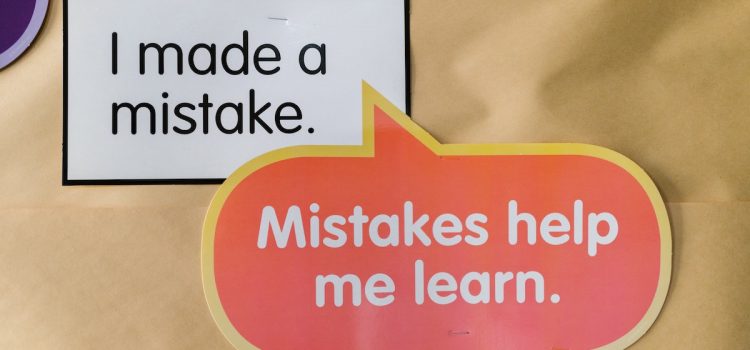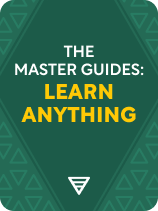

This article is an excerpt from the Shortform book guide to "The Master Guides: Learn Anything" by Shortform. Shortform has the world's best summaries and analyses of books you should be reading.
Like this article? Sign up for a free trial here.
What are you learning these days? Are you discouraged by the challenge? What if you saw mistakes as progress?
One of the hallmarks of learning is that you don’t get something right the first time. True learning is a process that takes time, and it often requires baby steps and even missteps. Incremental progress is progress all the same, and it can be an incredibly effective way to learn.
Read on for advice and encouragement to learn by making mistakes.
Trial and Error
Learning isn’t a linear process. Instead, one of your most important tools is trial and error—the process by which you use your mistakes as a springboard for growth. Though learning by making mistakes is a proven educational tool, it often requires an attitude adjustment. If you see mistakes as a sign of failure (as part of a fixed mindset), you’ll instead need to embrace a growth mindset by viewing your struggles as signposts to where you should direct your attention.
In The Art of Learning, chess champion Josh Waitzkin explains that, when you make mistakes, you can reflect on your errors and grow your skills. Each time you act, err, adjust, and repeat, you make incremental progress. You take one step at a time, sometimes succeeding, but often slipping up. For example, imagine playing a chord on a guitar. It doesn’t sound right, so you adjust your fingers and try again. Each time you do it incorrectly, the feedback tells you how to correct your form. Eventually, you’ll find the correct finger placement. Every incremental correction builds your knowledge—in other words, success lies on a mountain of mistakes.
This goes against the way many of us were taught as children. With its emphasis on testing and grades, traditional education punishes mistakes instead of valuing them as an educational tool. In Limitless Mind, Jo Boaler argues the importance of overcoming this unhelpful fixed mindset. Instead, you should view mistakes as a sign that you’re on the right track. Just as physical exercise can be painful, struggling with an intellectual concept is a sign that you’re working your brain’s metaphorical muscles. You can reframe any fears you may have about a subject by reminding yourself that just because you don’t understand it yet, it doesn’t mean that you won’t.
One strategy to embrace this growth mindset is to focus your efforts on addressing your mistakes. In Ultralearning, Scott Young refers to this as “drilling,” in which you isolate a weakness in your learning process and concentrate intensively on it. The aspect you isolate will often be an integral component of the overall skill or subject you’re studying. In mastering it, you unblock areas of learning that are impeding progress. By addressing the most difficult aspects of the process, you reduce delays, learn to confront your weaknesses, and improve overall proficiency.
| Example: Jack and Sara Stumble and Keep Going For Jack, the process of learning guitar is one of constant errors and correction, so much so that he almost gives up once or twice. After a while, though, he notices that the mistakes he makes aren’t the same as the ones he made in the beginning. Thanks to his incremental progress, the skills that tripped him up in the past aren’t the same ones that challenge him today. Sara notices something similar. To her, it feels that she’s struggling just as much in her second semester as she did in the first. However, when another student asks her for help with solving a problem, she realizes that concepts she wrestled with early in the academic year are now so intuitive that she can teach them to another classmate. Her early struggles resulted in those ideas becoming firmly implanted in her brain, while her current struggles are indicative that she’s still challenging herself to grow more. |

———End of Preview———
Like what you just read? Read the rest of the world's best book summary and analysis of Shortform's "The Master Guides: Learn Anything" at Shortform.
Here's what you'll find in our full The Master Guides: Learn Anything summary:
- How you can learn anything you want at any point in your life
- Advice from experts on how to master the skill of learning
- A guide on how to improve your memorization, comprehension, and more






